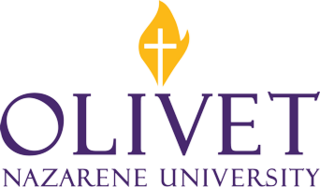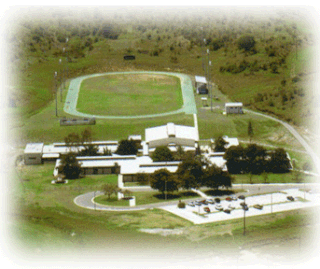Related Research Articles

Liberal arts education is the traditional academic course in Western higher education. Liberal arts takes the term art in the sense of a learned skill rather than specifically the fine arts. Liberal arts education can refer to studies in a liberal arts degree course or to a university education more generally. Such a course of study contrasts with those that are principally vocational, professional, or technical, as well as religiously-based courses.
A grammar school is one of several different types of school in the history of education in the United Kingdom and other English-speaking countries, originally a school teaching Latin, but more recently an academically oriented secondary school.
Academic tenure in the United States and Canada is a contractual right that grants a teacher or professor a permanent position of employment at an academic institution such as a university or school. Tenure is intended to protect teachers from dismissal without just cause, and to allow development of thoughts or ideas considered unpopular or controversial among the community. In North America, tenure is granted only to educators whose work is considered to be exceptionally productive and beneficial in their careers.
The Tripartite System was the arrangement of state-funded secondary education between 1945 and the 1970s in England and Wales, and from 1947 to 2009 in Northern Ireland. It was an administrative implementation of the Education Act 1944 and the Education Act 1947.
College and university rankings order institutions in higher education based on factors that vary depending on the ranking. Some rankings evaluate institutions within a single country, while others assess institutions worldwide. Rankings are typically conducted by magazines, newspapers, websites, governments, or academics. In addition to ranking entire institutions, specific programs, departments, and schools can be ranked. Some rankings consider measures of wealth, excellence in research, selective admissions, and alumni success. Rankings may also consider various combinations of measures of specialization expertise, student options, award numbers, internationalization, graduate employment, industrial linkage, historical reputation and other criteria.
Academic freedom is a moral and legal concept expressing the conviction that the freedom of inquiry by faculty members is essential to the mission of the academy as well as the principles of academia, and that scholars should have freedom to teach or communicate ideas or facts without fear of repression, job loss, or imprisonment. While the core of academic freedom covers scholars acting in an academic capacity — as teachers or researchers expressing strictly scholarly viewpoints —, an expansive interpretation extends these occupational safeguards to scholars' speech on matters outside their professional expertise. Especially within the anglo-saxon discussion it is most commonly defined as a type of freedom of speech, while the current scientific discourse in the Americas and Continental Europe more often defines it as a human right, with freedom of speech being just one aspect among many within the concept of academic freedom.

Olivet Nazarene University (ONU) is a private Nazarene university in Bourbonnais, Illinois. Named for its founding location, Olivet, Illinois, ONU was originally established as a grammar school in east-central Illinois in 1907. In the late 1930s, it moved to the campus in Bourbonnais. The university is affiliated with the Church of the Nazarene and is the annual site of the church's Regional Celebrate Life youth gathering for the Central USA Region.

The Quality Assurance Agency for Higher Education, usually referred to simply as the Quality Assurance Agency or QAA, is the UK higher education sector's independent expert quality body, with a remit to maintain and enhance the quality of teaching and learning in tertiary education in the UK and beyond. It conducts quality assessment reviews, develops reference points and guidance for providers, and conducts or commissions research on relevant issues.
Geoffrey Norman Blainey, is an Australian historian, academic, best selling author and commentator. He is noted for having written authoritative texts on the economic and social history of Australia, including The Tyranny of Distance. He has published over 40 books, including wide-ranging histories of the world and of Christianity. He has often appeared in newspapers and on television. He held chairs in economic history and history at the University of Melbourne for over 20 years. In the 1980s, he was visiting professor of Australian Studies at Harvard University. He received the 1988 Britannica Award for 'exceptional excellence in the dissemination of knowledge for the benefit of mankind', the first historian to receive that award and was made a Companion of the Order of Australia in 2000.
The term standard social science model (SSSM) was first introduced by John Tooby and Leda Cosmides in the 1992 edited volume The Adapted Mind. They used SSSM as a reference to social science philosophies related to the blank slate, relativism, social constructionism, and cultural determinism. They argue that those philosophies, capsulized within SSSM, formed the dominant theoretical paradigm in the development of the social sciences during the 20th century. According to their proposed SSSM paradigm, the mind is a general-purpose cognitive device shaped almost entirely by culture.
In the United States, higher education is an optional stage of formal learning following secondary education. It is also referred as post-secondary education, third-stage, third-level, or tertiary education. It covers stages 5 to 8 on the International ISCED 2011 scale. It is delivered at 4,360 Title IV degree-granting institutions, known as colleges or universities. These may be public or private universities, research universities, liberal arts colleges, community colleges, or for-profit colleges. US higher education is loosely regulated by the government and by several third-party organizations.
Ferdinand von Prondzynski is a German-born Irish citizen who was the former university leader in Ireland and Scotland, a lawyer and legal academic, a high-profile public commentator and latterly a candidate Anglican cleric. Formerly the Principal and Vice-Chancellor of Robert Gordon University in Aberdeen, Scotland, he previously served as the second President of Dublin City University (DCU) in Ireland (2000-2010), and before that as a professor and dean at the University of Hull, and lecturer and Fellow at Trinity College Dublin.
Geoffrey Alderman is a British historian who specialises in 19th and 20th centuries Jewish community in England. He is also a political adviser and journalist.

Educating Eve: The 'Language Instinct' Debate is a book by Geoffrey Sampson, providing arguments against Noam Chomsky's theory of a human instinct for (first) language acquisition. Sampson explains the original title of the book as a deliberate allusion to Educating Rita (1980), and uses the plot of that play to illustrate his argument. Sampson's book is a response to Steven Pinker's The Language Instinct specifically and Chomskyan linguistic nativism broadly.
QS World University Rankings is a portfolio of comparative university rankings compiled by global higher education analyst Quacquarelli Symonds (QS). Its first and earliest edition was published in collaboration with Times Higher Education (THE) magazine as Times Higher Education–QS World University Rankings, inaugurated in 2004 to provide an independent source of comparative data about university performance. In 2009, the two organizations parted ways to produce independent university rankings, the QS World University Rankings and THE World University Rankings.
The Research Excellence Framework (REF) is a research impact evaluation of British Higher Education Institutions (HEIs). It is the successor to the Research Assessment Exercise and it was first used in 2014 to assess the period 2008–2013. REF is undertaken by the four UK higher education funding bodies: Research England, the Scottish Funding Council (SFC), the Higher Education Funding Council for Wales (HEFCW), and the Department for the Economy, Northern Ireland (DfE).
Brian Roper is a British economist and former vice-chancellor of London Metropolitan University.

W.T. Sampson Elementary/High School is a K-12 school in Guantanamo Bay Naval Base, Cuba. In 2010 the school had 331 students in two campuses that are 2 miles (3.2 km) apart. As of 2010, 227 are in the elementary campus, and 104 (7-12) are on the secondary school campus.
College and university rankings in the United States order the best U.S. colleges and universities based on factors that vary depending on the ranking. Rankings are typically conducted by magazines, newspapers, websites, governments, or academics. In addition to ranking entire institutions, specific programs, departments, and schools can be ranked. Some rankings consider measures of wealth, excellence in research, selective admissions, and alumni success. There is also much debate about rankings' interpretation, accuracy, and usefulness.
Academic bias is the bias or perceived bias of scholars allowing their beliefs to shape their research and the scientific community. It can refer to several types of scholastic prejudice, e.g., logocentrism, phonocentrism, ethnocentrism or the belief that some sciences and disciplines rank higher than others.
References
- ↑ Newby, Howard (22 May 2005). "Facing up to HE's new economy". The Guardian . London. Retrieved 29 August 2009.
- ↑ Geoffrey Alderman, Times Higher Education , 30 July 2009. Higher Education in the United Kingdom since 1945: Simplistic view of insider betrayal.
- ↑ Sampson, Geoffrey (2006). "The death of learned journals". Learned Publishing. 19 (3): 234. doi:10.1087/095315106777877502.